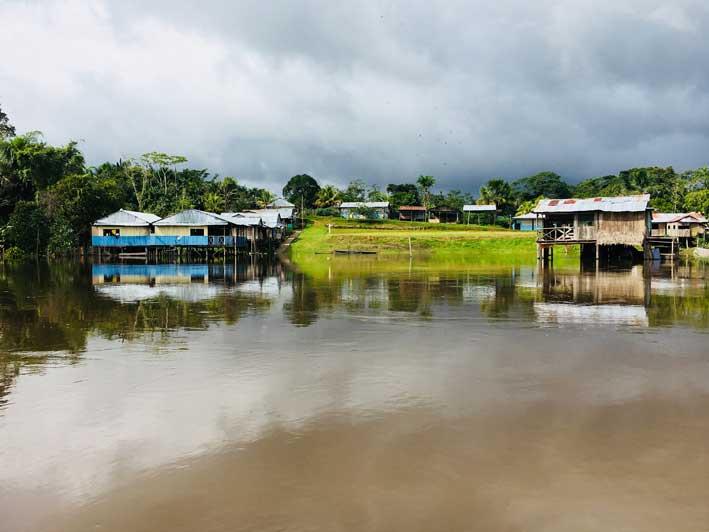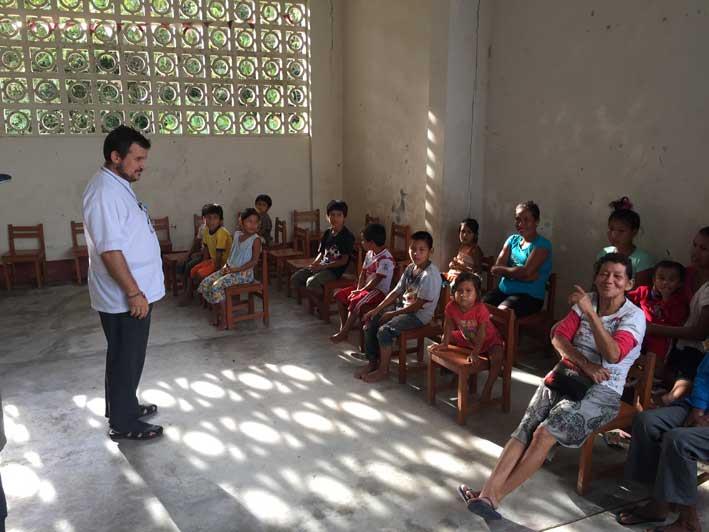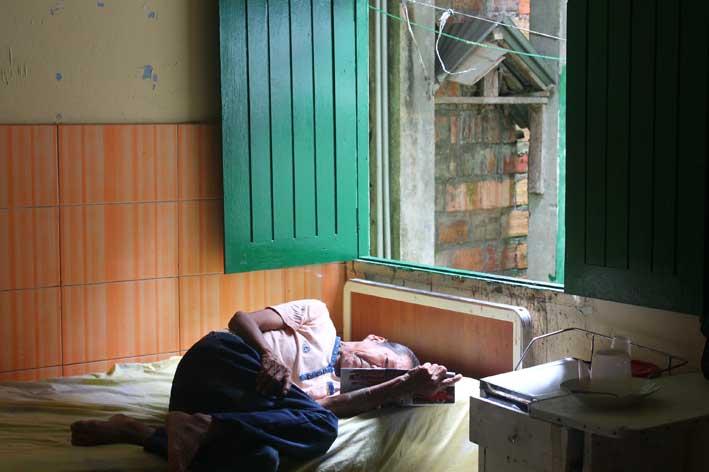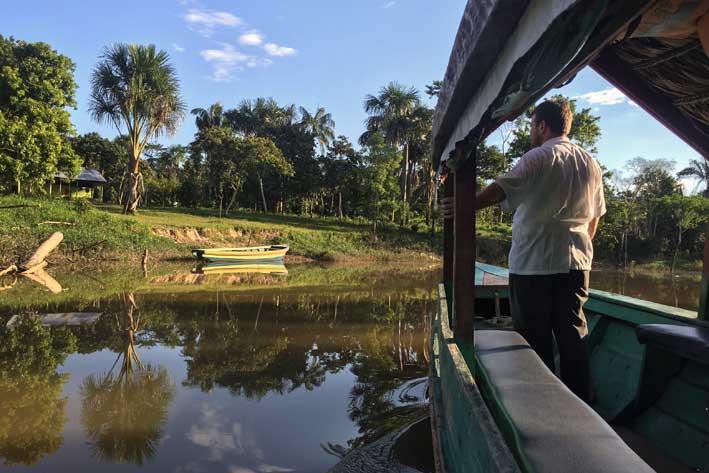It is difficult for anyone who has never met Maltese missionaries abroad to imagine how a parish priest manages to not only survive in an alien city such as Iquitos, but also to improve or even change the lives of so many others. In this respect, Father Raymond Portelli is unlike any other priest I've met or worked with.
To get Fr Ray to actually sit down and stay still for a 20-minute interview turned out to be quite a challenge, despite the fact that I am actually living in the same household as him at the time of writing.
Fr Ray, or 'Padre Raymundo' as he is better known here in his parish of San Martin de Porres, runs on a very busy schedule. He manages to juggle his commitment as a university lecturer, teaching at the local seminary, his work as a medical doctor and managing a tremendously busy parish.

"I arrived in Peru after I had finished my time at the Seminary in Gozo back in 1994", he says - in a strong Gozitan accent. "First, I spent almost two years in Lima but then they notified me that they needed someone to serve in the selva (jungle). I immediately volunteered and in 1996 - at the age of 28 - I arrived in Iquitos."
His living room has been transformed into a pharmacy, a clinic and an office. As a backdrop, hundreds of books stand tall - ranging from fiction, such as the Dan Brown collection, to medicine and God. The books are in English or Spanish and there are even a few in Maltese. The shelves on the widest wall are full of an array of medication which serves as the makeshift pharmacy.
With a population of around 550,000, Iquitos is not only the largest but also the only metropolis in the Amazon - and possibly the most humid, and is only accessible by plane or boat. The only tourists who actually make it to Iquitos are those wanting an authentic jungle experience.

It is the capital of the Loreto region, which is the poorest part of Peru. Education levels here are at the lowest in almost all of South America and, unfortunately, poor education and difficult social backgrounds have created very harsh big problems.
HIV and tuberculosis spread easily - especially in the slum area of Belen. Where illness does not strike, very cheap drugs manage to filter through - from the very young to the older population. In fact, alcohol and drug addiction is a major issue.
"The first years were interesting and a learning experience for me", says Fr Ray. "I got used to the reality of Iquitos and could see what was needed most. After two years of serving as the parish priest at San Martin de Porres, and when I had got the hang of Spanish, I decided to take an eight-year-long course to become a medical doctor. I'd spoken first with the then Bishop of Gozo, Mons Nikol Cauchi, and he didn't think there would be a problem, as long as I managed to fulfil my duties as a priest. Then I had to speak to the church authorities here in Peru. Their initial reaction wasn't at all positive. Somehow they argued that medicine does not fall under the duties of a priest. I, on the other hand, believed that this would complete me. I cannot imagine not being a medical doctor now," he said.

One can only imagine that, among the many obstacles with which Fr Ray had to cope in order to complete the very demanding course, was the problem of actually finding the time to study. "Those years I spent studying were nothing short of crazy," he said. "I would only find the time to study very late at night or in the early hours of the morning. I would sleep on the way to and from the university: I'd get the best sleep on the motokar," he explained, laughingly.
Each week, hundreds of people flock to visit him at his free clinic. "Then I make sure that, every month, I visit one of the nearby villages along the river. I take with me every kind of medicine I have because, once I get there, I don't know what illnesses I'll find."
After quickly establishing himself as a charismatic Christian priest and the Sunday Mass becoming jam-packed with people, Fr Ray felt he could do more for the impoverished community of Iquitos. Which is why, in 2003, he opened the parish's first home, which would become a landmark of Fr Ray's legacy in Iquitos: Casa Algo Bello Para Dios (Something beautiful for God).
"We opened this home to provide shelter and medical help to people suffering from HIV, tuberculosis and other critical illnesses and it is always full," says Fr Ray. Algo Bello provides free accommodation for 18 patients, along with food and treatment. Since its first day, it has helped hundreds of people to recuperate and others who simply needed a bed in which they could spend their last days in peace. The house has patients of all ages. The youngest at the moment is 17 years old. His family rejected him and Fr Ray's shelter is now his home.

"We named it 'Something beautiful for God' because it is one of Mother Theresa of Calcutta's quotes. I met her once, back in 1989, and her work influenced me greatly."
Wanting to tackle one of Iquitos biggest issues, the priest from Nadur then decided it was time to set up a professional drug rehabilitation centre. In 2005, with the help of a professional team, the parish established Talita Kumi, a drug rehabilitation centre.
Fr Ray then decided to open up Casa Betania and Casa Santa Rosa de Lima, both of which provide accommodation for the homeless. Casa Betania currently hosts around 25 men who live on the streets but gather here at night for a soft bed and a good breakfast. Casa Santa Rosa is home to 22 elderly people who are sick and have no family to take care of them.
After almost 25 years, Fr Ray is the true - and one of the very few - testimonies to charity here in the Amazon city of Iquitos. The four homes he manages are run only through donations he manages to collect from fund-raising activities here at San Martin de Porres and in Malta.
His wish is to have enough money to be able to establish a home for children who come from dysfunctional families in Iquitos. "Little by little, with God's help, we'll make it happen too," he says, before he dashes off to start his long day of missionary work.